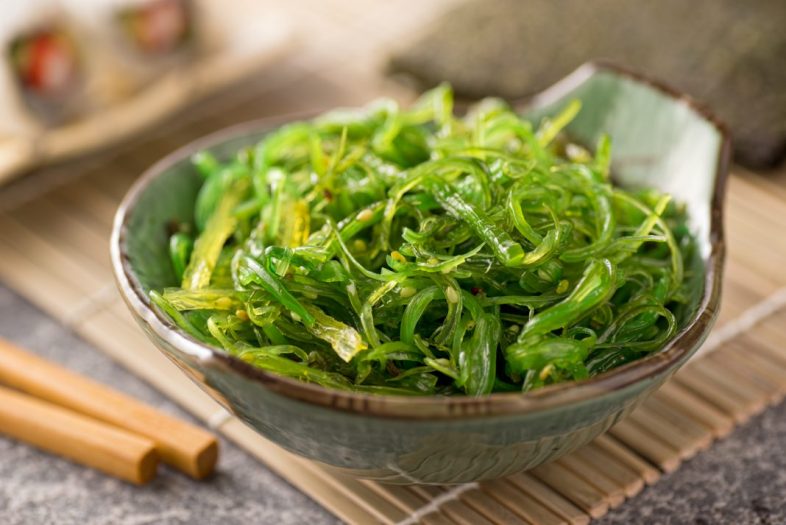By: Kejal Sheth
Nutritionist, Weight Management Expert and Founder of Nutrivity.in
What is Spirulina?
Spirulina is one of the oldest life forms on Earth. In fact, this blue-green microalgae is partly responsible for producing the oxygen in the planet’s atmosphere that billions of years ago allowed the planet’s originating life forms to develop. Spirulina is the world’s first superfood, and one of the most nutrient-rich foods on Earth.
With the surge in eating clean in recent years, it’s no wonder that you’re hearing of new foods as part of this movement.
It’s all about getting rid of processed foods and welcoming natural, healthy, and even holistic foods as part of this clean eating effort.
One such food that has come to the forefront, which continues to gain a great deal of attention, is spirulina.
What is the Nutritional Composition of Spirulina?
A single tablespoon (7 grams) of dried spirulina powder contains :
- Protein:4 grams.
- Vitamin B1 (Thiamin):11% of the RDA.
- Vitamin B2 (Riboflavin):15% of the RDA.
- Vitamin B3 (Niacin):4% of the RDA.
- Copper:21% of the RDA.
- Iron:11% of the RDA.
- According to the FDA, Spirulinacontains significant amounts of calcium, niacin, potassium, magnesium, B vitamins and iron. It also has essential amino acids (compounds that are the building blocks of proteins). In fact, protein makes up about 60 to 70 percent of Spirulina’s dry weight.
- This is coming with only 20 calories, and 1.7 grams of digestible carbohydrate.
- A tablespoon of spirulina contains a small amount of fat (around 1 gram), including both omega-6 and omega-3 fatty acids in about a 1.5:1 ratio.
- The quality of the protein in spirulina is considered excellent, comparable to eggs. It contains all the essential amino acids that we need.
Benefits of Spirulina:
1. Boosts Energy-
When you look at the chemical composition of spirulina, it’s no wonder that people who regularly consume it have an abundance of energy
2. Helps Speeds Up Weight Loss –
Diets high in nutrient-dense protein-rich foods like spirulina promote weight loss and low-fat stores through a variety of mechanisms. It can also curb hunger and overweight people seem to benefit the most.
3. Spirulina Has Powerful Antioxidant –
Spirulina is a fantastic source of antioxidants, which can protect against oxidative damage. The main active component is called phycocyanin. This antioxidant substance also gives spirulina its unique blue-green color.
4. Spirulina Can Lower LDL and Triglyceride Levels –
Heart disease is currently the world’s biggest killer.It is known that many measurable factors, termed risk factors, are linked to an increased risk of heart disease. Along those same lines, spirulina benefits have also been shown to prevent atherosclerosis and reduce elevated blood cholesterol levels.
5. Lowers Blood Pressure –
Phycocyanin is a pigment found in the spirulina that scientists have discovered possesses antihypertensive effects (it lowers blood pressure). Researchers claim that this is because consuming the blue-green algae reverses endothelial dysfunction in metabolic syndrome.
6. Muscle Strength & Endurance –
Exercise-induced oxidative damage is a major contributor to muscle fatigue. Certain plant foods have antioxidant properties that can help athletes and physically active individuals minimize this damage.
How to Take Spirulina ?
- Now you see just how beneficial it is to your health.
- The best way to start taking is to mix it into things.
- You may benefit from 1-2 teaspoons per day, which is easy enough to mix into your favorite healthy dishes.
Precautions and Issues to Be Aware of:
- Though you may enjoy adding it to your diet and be open to the many health benefits it offers, you also don’t want to overdo it.
- Taking the proper dosage, which really is centered around 1-2 teaspoons per day, is recommended.
- Some of the potentially toxic substances may include lead, which can cause long-term damage to both children and adults.
- Always opting for organic can also ensure that you get the highest-quality product.
- If you have a seafood allergy, you’d want to avoid these algae as it can cause an allergic reaction.
- You can include spirulina in your diet only upon Prescription by your nutritionist and avoid self-Prescription.
